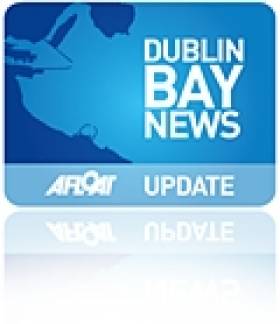Displaying items by tag: promenade
DCC Rejects Clontarf Flood Defence Plan
#DUBLIN BAY NEWS - Dublin City Councillors have unanimously rejected controversial plans for flood defences in Clontarf.
As previously reported on Afloat.ie, councillors were set to vote last night on whether to give the green light to the scheme, which has faced strong opposition from local residents and business owners.
The flood barrier would have involved the construction of mounds or walls up to and above 7ft high along the Clontarf promenade.
However, following a vote last night, a redesigned proposal was rejected by the council, with officials admitting to The Irish Times that the public consultation process "didn't work".
Labour councillor Jane Horgan Jones said that it was now up to council officials and the local community to develop an acceptable plan to protect Clontarf from flooding in the future.
"However this is done, it must not be at the cost of destroying a beautiful, free and natural amenity that has been used by generations of Dubliners, from within and outside Clontarf, for many years,” she said.
The Irish Times has more on the story HERE.
One-Bed Apartment with Galway Bay Views
#WATERFRONT PROPERTY - A stylish and modern one-bedroom apartment boasting fantastic views of Galway Bay is now available for sale at the Pointe Boise development in Salthill.
Number 26 comprises an entrance hall with plenty of storage space, a red wood kitchen with with all necessary appliances, and a living room with private balcony overlooking the Salthill promenade.
The spacious double bedroom comes with built in wardrobes, while the bathroom features a power shower. The apartment also benefits from private underground parking.
For further details contact Gormally auctioneers and property management, 1 Churchyard Street, Galway at 091 565000 or [email protected].





























































